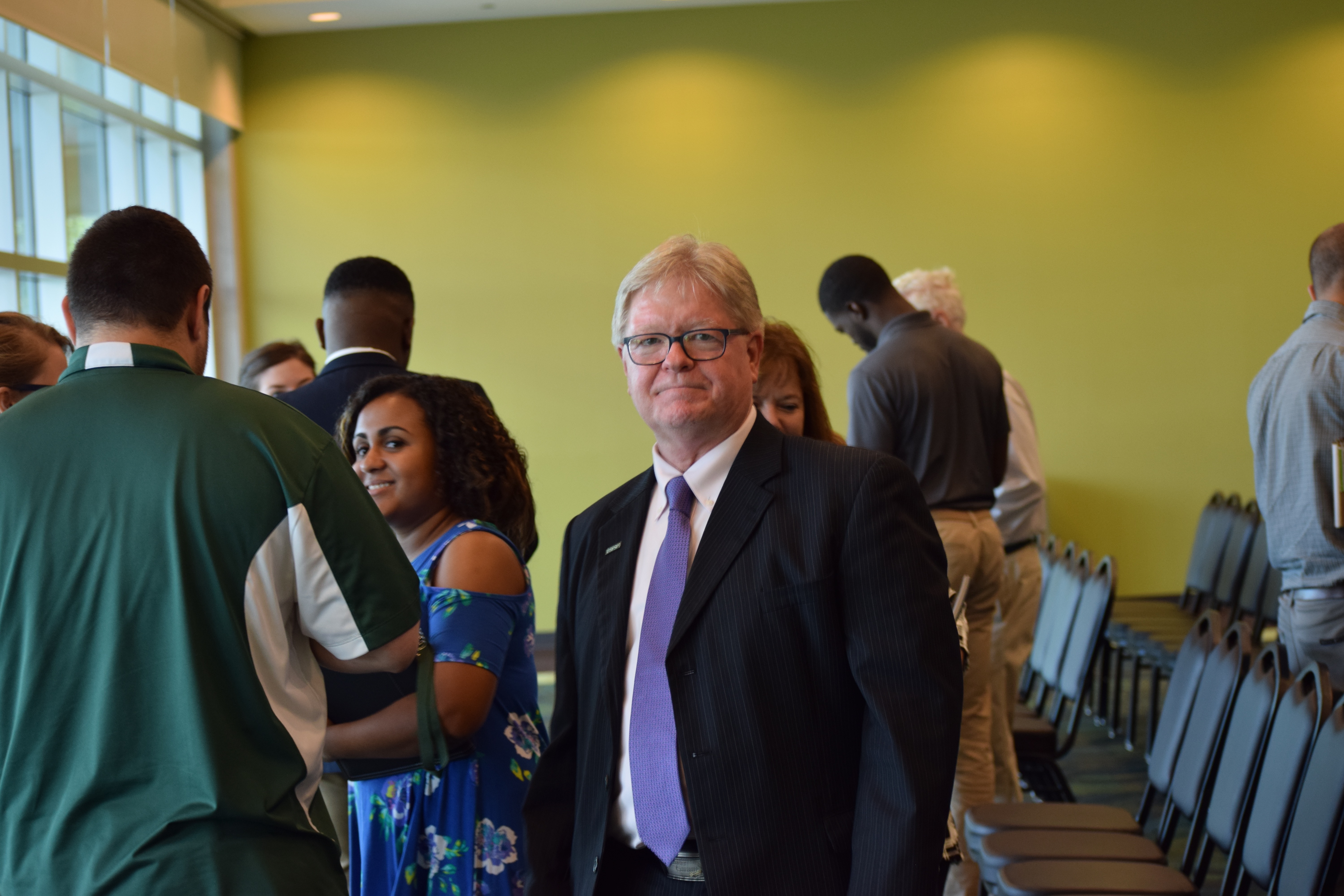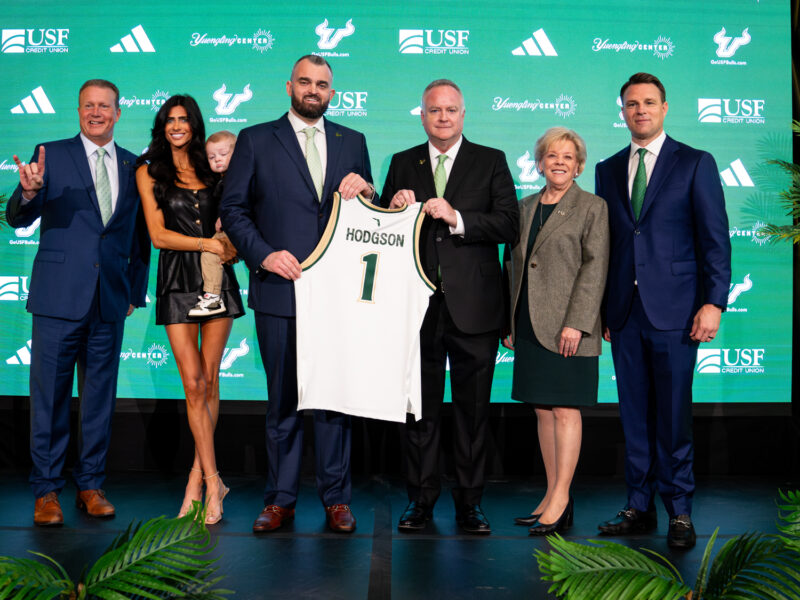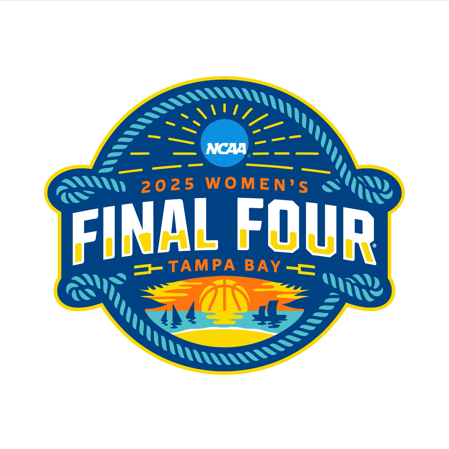Above photo: Martin Tadlock, interim Regional Chancellor, plans changes for the campus in coming years. Jonah Hinebaugh | The Crow’s Nest
By Michael Moore Jr.
On any given day you might see someone handing out flyers to an event on campus. Last Wednesday, it was interim Regional Chancellor Martin Tadlock greeting surprised students while passing out flyers at the Peter Rudy Wallace Florida Center for Teachers.
The cards read: “Sign up for an afternoon sail with Martin Tadlock, Interim Regional Chancellor, USFSP (on) Thursday, Jan. 26, 2018 3-5 p.m.”
The sail is one of several student outreach efforts that Tadlock is doing this semester as he holds monthly lunches, a student breakfast and pottery sessions — as well as additional sailing dates.
“When I was handing out cards for students to sign up to go sailing,” said Tadlock, “there was a range of responses from suspicion — ‘are you trying to sell me something?’ — to ‘this is kind of weird, what is this all about?’
“I think it reflects that this hasn’t been done before,” he said.
Tadlock stressed the importance of student engagement in a wide-ranging interview with The Crow’s Nest in which he touched on what he called the “dynamic and always changing” nature of the campus.
During an employee breakfast Friday morning, he emphasized to faculty and staff that “everyone’s a teacher here and everyone’s a learner, including all of our employees. Because everything you say teaches something.”
He urged faculty members to do whatever they can to connect with students, whether that’s buying them a hamburger or taking them out on a kayak.
“We have to listen to students and we’ve got to hear them,” he said.
Tadlock says students can expect change over the next couple of years.
Among the changes will be slightly higher entrance requirements. For admission in summer 2018, incoming students will be expected to have a GPA of 3.5, an increase from the current 3.3 or 3.4, Tadlock said.
The GPA requirement will be raised again for the summer and fall of 2019, though a specific number has not been decided, he said.
According to Serge Desir, director of undergraduate admissions, the increase in entrance requirements is not meant to act as a barrier for entry, but rather a tool to help better prepare students who come here.
“One of the primary goals in the USF system is to do what we can to make sure that the students that we offer admission to are in the best position to be successful,” Desir said. “That was the rationale behind the change.”
Tadlock says the university will be working closely with Pinellas County schools and two-year community colleges such as St. Petersburg College to help ensure that when students do make the transition they do so successfully.
This comes at a time when USF St. Petersburg is putting a lot of attention on increasing its retention rates.
The results of a recent “Withdrawn Students” survey show that the reasons students do not finish their education at USF St. Petersburg include changing majors to one the university does not offer, financial problems and trouble getting courses in the necessary sequence for graduation.
Tadlock says the survey told administrators what they already knew. As a non-traditional commuter himself years ago, he understands the difficulties of being a working student.
“I was a terrible metric for a university. I was one of those students they don’t want in terms of metrics,” Tadlock said.
Students can expect to see other changes rolled out this semester.
Responding to criticism from the Faculty Senate, the university is assembling a sexual harassment task force to review its policies and procedures.
The task force will have two students and 13 other members from the faculty, administration and staff. It will ultimately submit a report with recommendations to Tadlock on how to sharpen and clarify existing policies and offer training to make people aware of what constitutes sexual harassment.
Tadlock said he expects the task force to have its first meeting in early February.
Heavy investments in facilities and infrastructure are also on the way. In addition to redoing roofs and air conditioning systems across campus, the university plans to remodel Davis Hall and install a STEM robotics lab in Coquina Hall.
There is also a master facilities plan in progress that looks at property acquisition both in the short term and over a 10-year period.
Because the university is surrounded by water and property owned by private and other governmental agencies, “we’re kind of locked here,” Tadlock said.
As a result, the university looks closely at opportunities to acquire property in the immediate area. One property under consideration, Tadlock said, is the National Oceanic and Atmospheric Administration building at 263 13th Ave. S, just south of the campus.
At least a year’s worth of work goes into acquiring a new property, Tadlock said. It involves securing funding, getting approvals and making sure that the property falls within the priorities of the USF system. Legislative support is also required.
Still, student outreach remains at the heart of it all.
Ten students will be randomly selected for the first sailing trip with Tadlock. They will be notified by Jan. 19.
“I’m not teaching in the classrooms, I don’t have the opportunity to see students every single day and have conversations about their experiences here,” Tadlock said. “I wish we had a boat that would hold 200, but we don’t.”



